The Alchemist
by Paulo Coelho
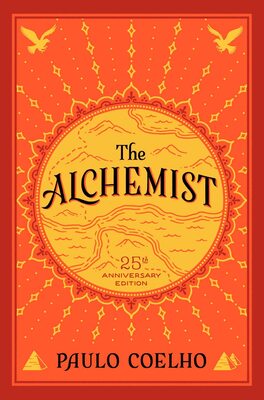
Relistening to this story once again. This time it feels very simple. I'm trying to draw some life advice from it, but it feels too naive. I can summarise it as "follow your dreams, otherwise you'll regret it for the rest of your life". However, if I review this book as pure fiction without any deeper intent, the story is too unsophisticated.
The Long Way to a Small, Angry Planet
by Becky Chambers
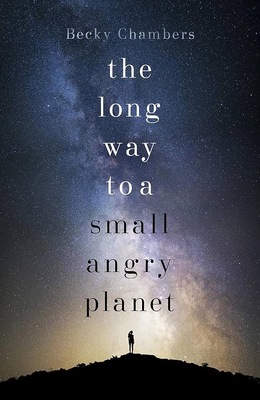
I keep pushing my boundaries and reading more fiction books. This book was selected for a local book club. I definitely got lucky with this one, it was very easy and enjoyable to read for a beginner like me. The story is engaging, with interesting characters. The book also touches on different themes like family, attraction, belonging, the past, identity, and more. Loved it.
Why We Sleep
by Matthew Walker
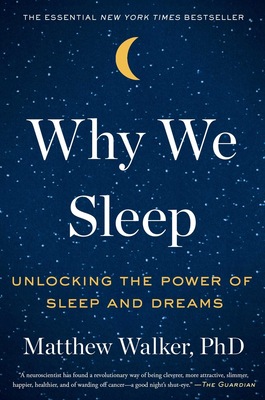
That's one of those books when you think what's there to know about sleep. Turns out a lot. The book is an overview of the current research about sleep. There are a lot of references and details, so be prepared for a long read.
Before reading the book I already saw sleep as one of the most important activities. After reading it, I definitely underestimated it.
I would recommend this book to everyone. I think it's important to understand and appreciate the power of sleep.
High Performance Browser Networking
by Ilya Grigorik
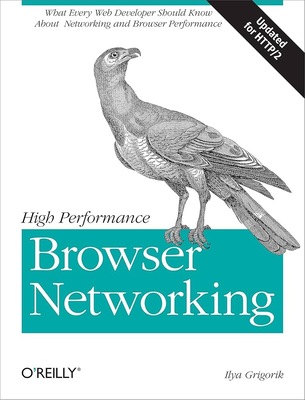
This is a technical book about network and web technologies. It's not something you can apply as a skill but rather use it as a foundational knowledge in your work. Do you have to know it? No. Will it make you a better developer? Definitely.
Reading this book made me appreciate web technologies: how successful they are and how well they are designed. I feel very fortunate to have my career in web.
The book was published in 2013, and is still relevant. However it would be great to update it to 2024 since many of the technologies are much more adopted 11 years later.
Greenlights
by Matthew McConaughey
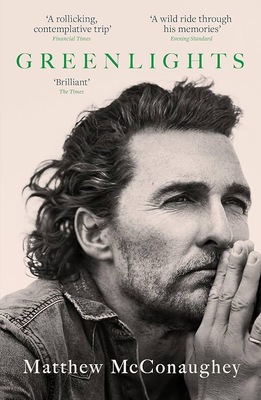
My friend loved it, while I didn't expect much of it. I do like his voice so I decided to listen. And wow, amazing! Great story, amazing audio narration, good life lessons, deep and personal. I loved it. I loved it.
I thought the audiobook was great, but the written copy is a masterpiece on its own. Photos, notes, journal, side notes. I can't decide which way is the best to consume this book.
Outliers: The Story of Success
by Malcolm Gladwell
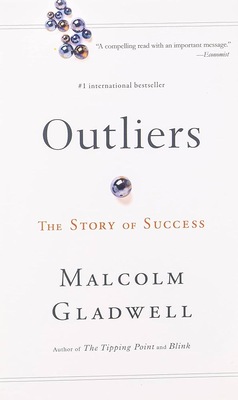
Interesting book that analyses what makes exceptional (aka outliers) people great. The author argues it's not what we think. My experience aligns with the reasoning. In short it's two things: opportunities and ability to seize them. It seems the former is much more important though.
The book also talks about the effects of legacy on our success. I didn't think about it too much, but it's definitely a common experience in my career when working with people from different cultures.
The book is full of stories and historic examples, which makes it easy to read. It could benefit from better highlighting the point in each chapter though, which would help in remembering it.
Warrior, Magician, Lover, King A Guide To The Male Archetypes Updated For The 21 st Century
by Rod Boothroyd
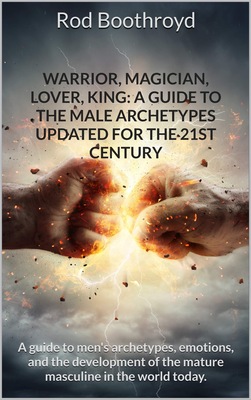
I read this book after the original King, Warrior, Magician, Lover book by Moore last year. I didn't like the original and didn't quite get this one. Since I didn't get it, I couldn't write a book review on my blog. It was sitting on my to-do list to review until Rob Boothroyd, its author, reached out and suggested that I read it. As a nice gesture I thought it would be nice to reread the book and review it properly. One year later I finally did it.
I like this book, and 4 archetypes finally grew on me. I find it a very simple but effective model, which works well in explaining the complexities of adulthood. Unlike the original the book is written in simple english. It has a good balance between theory and practical steps. It's shocking how some of the people's descriptions in the book were extremely accurate to people I know in real life.
The book is well structured, but I felt it's lacking the flow or coherence. That's probably why I found it hard to swallow the first time.
I'd recommend this book to all guys and you can save yourself some time and skip the original by Moore.
ReWork
by Jason Fried and David Hansson
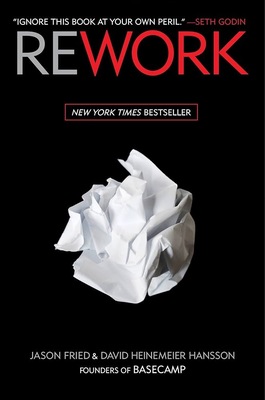
I was re-reading this book for a book club. I read it 7 years ago. You can read my previous review there.
After 7 years, my opinion of the book hasn't changed. It's a good collection of work tips and principles about small companies (but not necessarily small businesses). This book is better than The Minimalist Entrepreneur that I read recently for the minimalist mindset.
I added this book to my founder's must read list.
The Psychology Of Money
by Morgan Housel
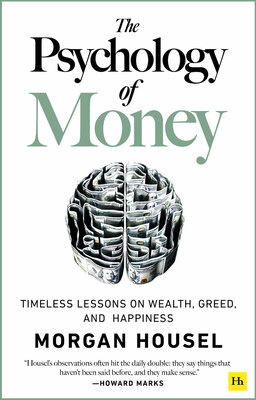
I like how this book is easy to follow and understand. It talks about wealth topics that are not usually discussed or obvious.
For example Warren Buffett who started investing at 10yo and is recognised as one of the greatest investors. His net worth is $84.5 billion. However he accumulated 99.5% of that after his 50th birthday or 96.5% after his 65th birthday. That's not so impressive anymore.
In addition, if you take his investment skills and apply to an average person who starts investing at 30 and retires at 60, their net worth will be $12 million. That's a decent amount of money, but not that impressive for the skills of a greatest investor. And that's a realistic theoretical maximum and your success won't be nowhere near that.
Audiobook format was okay, but keep in mind there are few charts that are quite important. I can recommend this book to everybody who is money conscious. I think you'll learn something new.
Principles
by Ray Dalio
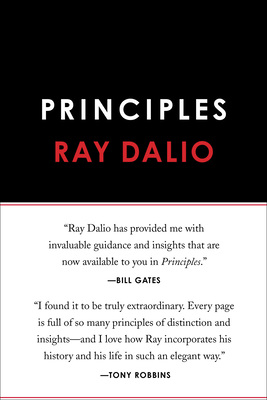
Principles is one of the best books I've ever read.
I was always surprised that there is little to none of the best knowledge transfer between generations. As a result each generation has to start at zero and figure out life themselves again and again. Our technology is improving at a rapid rate, and yet our life skills barely moved, and some could argue even deteriorated over generations. I feel this book serves that stable platform to step on and to move further in life.
Unfortunately I spent a lot of time learning the hard lessons myself. However, on a good side, only after that I can assess the quality of the book. That makes me appreciate it, as it fully aligns with my life experience and world view.
Do NOT listen to the audiobook, but read the book instead. The book is very well structured and that structure is lost in audio format making it much harder to absorb.
If you want to achieve things in your life that book should be your number 1 to start with. If you manage people, it also should be your No.1. I definitely will be re-reading it again soon.
Update 1: There is a summary version of the book called Principles for Success which should be No.1 to read for everybody.
The Manual: A philosopher's guide to life
by Epictetus (interpreted by Sam Torode)
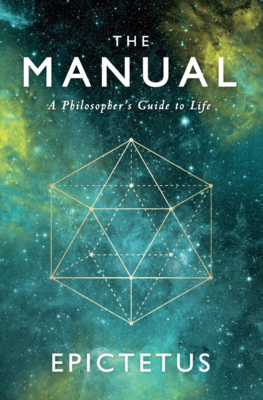
This is a modern interpretation of old philosopher and stoicism founder - Epictetus. There are 52 bite size chapters/teachings. I haven't seen the original so it's hard to gauge the quality of the rewrite. This is a good "pick-up and drop" book for beach, bedtime or morning routine.
If you are into Stoicism definitely read this one. And you are not, then you should be.
How to lie with statistics
by Darrell Huff
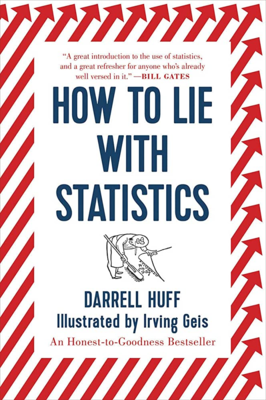
You might say this is a classic book as it was written in 1954 and got wide popularity and recognition. 50 years later it is just as relevant. This book was referenced by How Charts Lie book and they go well together.
After reading this book I'm pretty convinced that more than 90% of statistics are wrong. That really changes your perspective when you hear a new statistic claim. Advertising industry and politics are built on misrepresenting information and luckily for them there are many ways to do so while appearing legitimate.
Read those books to see many ways to do that. My lesson is don't trust and question every statistic and research you hear about.
Mating in Captivity
by Esther Perel
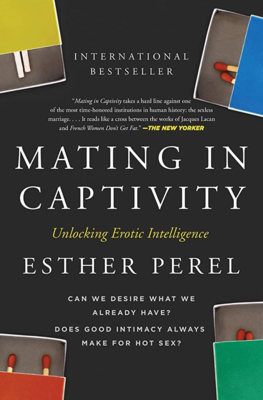
Great book about sexuality, eroticism, attraction, and intimacy in relationships. I found it very valuable and see how it could benefit every relationship out there. The book helped me understand and separate intimacy from sexuality and eroticism. Once they are separate the next part is to balance them. I definitely recommend this book to everybody older than 25yo.
Animal Farm
by George Orwell
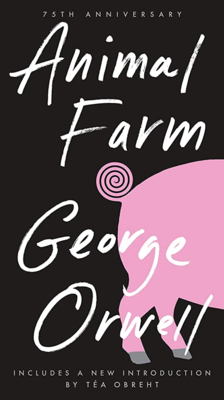
This is such a good book. Written in 1945 it didn't age a bit. It's short, full of meaning and satire. No surprises that it's on the list of best novels. I recommend it to everybody.
She Comes First
by Ian Kerner
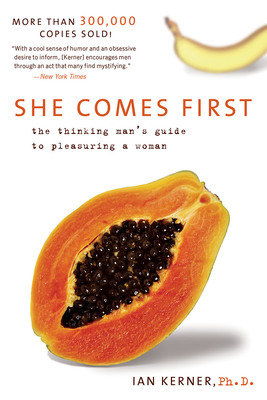
This book was a recommendation by a vlogger I follow. It caught my attention because it's about sex education, has a good rating and I was looking for something easy to read.
While reading this book I realised that I never got decent sex education so it was useful to fill the knowledge gaps. My impression is that most people are the same.
The book has a good balance between theory and practical advice. I'd recommend it to all guys. Perhaps delay the read until you have a partner to practise it with, as the techniques require practice.
Leadership and the One Minute Manager
by Ken Blanchard
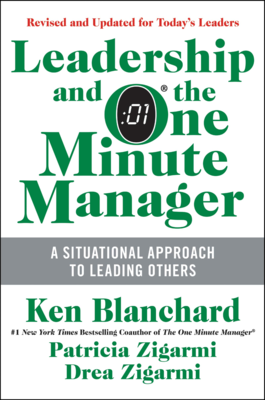
This is a short and story driven book about how people need different management styles at work. In addition management styles need to change as we grow in our roles.
The book's principles correlate with ShuHaRi concept which I'm a big fan of for employee onboarding. I also found similarities in ways to influence teammates from the Resilient Management book. There are four: mentoring, coaching, sponsoring, and delivering feedback.
This book is a must read for everybody - managers and subordinates. Working effectively together is a shared responsibility, not just managers'.
Modern Software Engineering
by David Farley
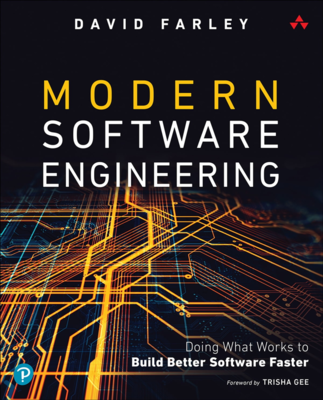
It's a really good book that talks about software development fundumentals. It didn't change my mind, as I already knew most of it. However I found it useful to reiterate the argument why those fundumentals are important. I did find the book a bit repetitive at times, but not enough to be distracting.
The book is well structured and easy to follow. The book suggest two main parts which we should optimise for: learning and complexity.
“Optimize for Learning,” looks at how we organize our work to allow us to make progress in small steps. How do we evaluate if we are making good progress or merely creating tomorrow’s legacy system today?
“Optimize for Managing Complexity,” explores the principles and techniques necessary for managing complexity. This explores each of these principles in more depth and their meaning and applicability in the creation of high-quality software, whatever its nature.
The book also covers important topics like: What is software engineering? Is it a craft or engineering? How to measure software? How to evaluate external tools? and more.
I would recommend this book to all software devevelopers, senior or junior.
The Code of the Extraordinary Mind
by Vishen Lakhiani
10 Unconventional Laws to Redefine Your Life and Succeed On Your Own Terms
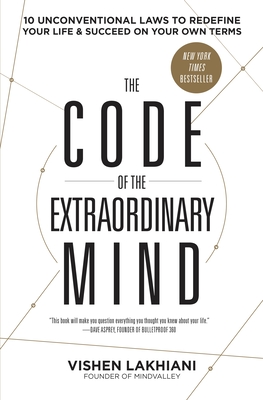
It's amazing how this book is good and off-putting at the same time. This book is for people who want to take control of their lives, live true to themselves and be happy. I really like the author's ideas and suggestions. They are easy to understand and practical.
If not the endless self promotion and name dropping littered all over the book, that book would go to my best list. The book would be much better if those parts were simply removed.
I recommend this book as long as you can focus on the good parts.
How to not die alone
by Logan Ury
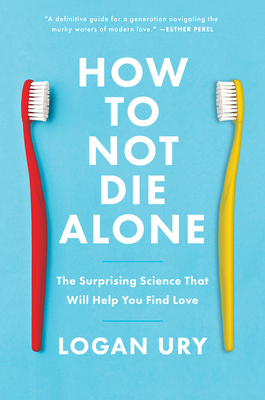
I enjoyed this book. It's about preparing for dating, dating and growing relationships. The content is very broad and doesn't have much depth. It has just enough to make a point, but if you are looking for strong evidence to back it up, it's not for you.
This book reminded me of the Defining Decade book. Both of them are very practical and easy to read.
If you haven't found a long-term partner yet, I think you'll also find this book interesting and it might help you with dating.
Another review on youtube.
Team Topologies
by Matthew Skelton and Manuel Pais
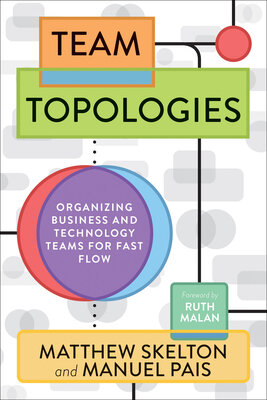
Finally a good book on team structure. I really enjoyed this book. It's very practical and provides a deep understanding of choices. Recent trends that more collaboration is better or all teams are the same are a big delusion. In fact sometimes less collaboration yields better results. But the question is which is which? The book doesn't give you a solution, but rather gives you tools and understanding to decide for yourself.
I listened to the audiobook, and while it was insightful, the book has a lot of diagrams, so I'll be reading it. I think this book is worth reading when you have at least 15 people across all teams.
While the book talks about tech teams, I'm curious how well these concepts could work on the organisational level across departments. 🤔
Update 13th Nov 2021: finished reading the book. Yeap, it's still very good. I definitely missed some parts in the audiobook as there are many images related to the discussion.
The Great CEO Within: the tactical guide to company building
by Matt Mochary
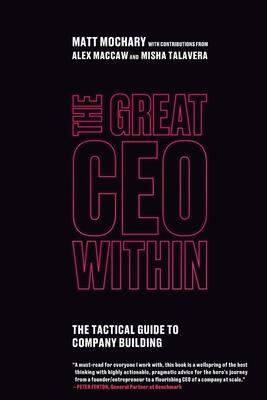
I loved this book. It's straight to the point. Chapters where the author is referring to other books do not repeat them, but reference the source instead.
The book's title is very accurate, it's a guide on how to build a company. It covers a bit of everything: co-founders, the team, personal habits, decision making, leadership, culture, tooling, collaboration, meetings, fundraising, recruiting, sales. My favourite chapters are decision-making, meetings and recruiting. I will be revising them later.
While the book is tailored for the CEOs, I would recommend it to a wider audience as it offers good advice to be an effective company. The chapters are clearly labeled and you probably can skip "Fundraising" as it won't be as useful to you.
The Manager's Path: A Guide for Tech Leaders Navigating Growth and Change
by Camille Fournier
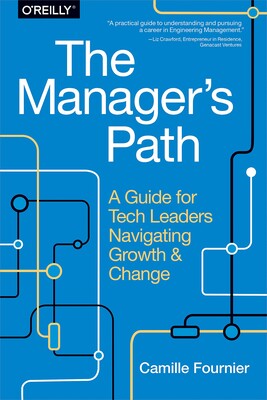
The book gives an overview of what developers' career might look like when they move to management. The book has a good structure and easy to follow. I like how the author highlights challenges of each career level.
For example many developers see CTO position as their careers goal (I did myself). However the majority would resent it when they understand what it includes.
The book could benefit from deeper and wider research. It feels author's experience was the main source for the book. I wish the book was more comprehensive and included more roles.
I would recommend this book to all software developers at all levels to better understand their career path. In addition, the book should teach to spot and help bad manager they will encounter at work.
The Little Book of Common Sense Investing: The Only Way to Guarantee Your Fair Share of Stock Market Returns
by John C. Bogle
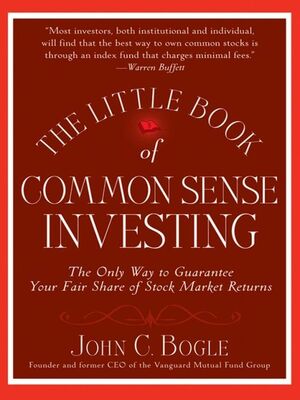
Barefoot Investor recommended this book. It is written by John Bogle who founded Vanguard Mutual Fund Group. If you don't know, Vanguard is the largest provider of mutual funds and the second-largest provider of exchange-traded funds in the world.
I found the book very dry to read, however, it has plenty of research data. The book requires a good understanding of different investment schemes to fully appreciate it. Unfortunately I could only grasp the core message: invest in index funds. They provide the best diversification and with lowest fees it's almost impossible to beat them.
That's only applicable to long term investments though. By following the mentioned advice, it should put you above the majority with minimum cost and effort. I agree with Barefoot Investor, this book is a must read for all stocks investors.
Few quotes:
In the short run the stock market is a voting machine . . . (but) in the long run it is a weighing machine.
-- Ben Graham
When there are multiple solutions to a problem, choose the simplest one.
-- Occam’s Razor
Common sense tells us that performance comes and goes, but costs go on forever.
"The greatest enemy of a good plan is the dream of a perfect plan.” Stick to the good plan.
The two greatest enemies of the equity fund investor are expenses and emotions.
Resilient Management
by Lara Hogan
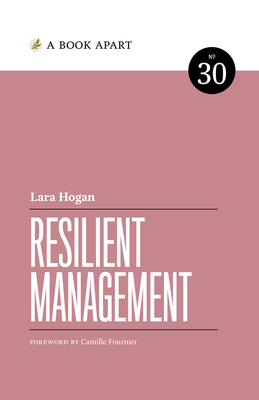
This book gives good introduction to management. It gives exposure to the few concepts and frameworks. While it's very short and narrow, it's enough so you can continue learning by researching the mentioned references.
Looks like the book is primarily based on Lara's experience with a sprinkle of research. The advices she gives are very specific and practical. I wish the book included more details about stages of group development. While Lara used it as a thread that connects all chapters, but it definitely could have a stronger presence.
The strongest chapter is about growing your teammates through mentoring, coaching, sponsoring and feedback. I found it very insightful and valuable.
Considering how under-skilled the managers I've met in my career, I think the book is a good fit for the majority. I'm yet to see a comprehensive management book, so I would recommend Resilient Management to at least junior to mid managers.
Joy Inc. How We Built a Workplace People Love
by Richard Sheridan
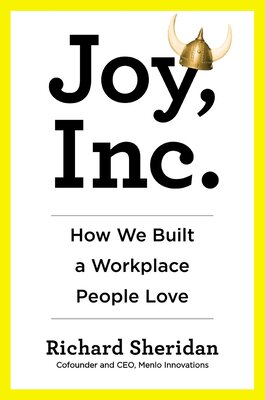
This book is a simple description how fairly successful consultancy company called Menlo works. The book is obviously promoting their process and culture, but it’s not encouraging you to follow it. That makes it smooth to read and allows you to make your own conclusion.
Menlo is a consultancy and not a product company. That defines their culture and processes. Looks like a lot of processes were solidified when the company was founded in 2000s. Nothing wrong with that, it just feels dated at times.
Below are my highlights and comments
Great by choice
by James C. Collins
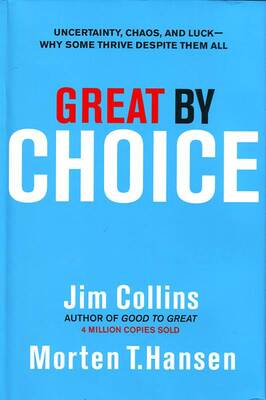
Great by choice is a book about research that answers the question: why do some companies thrive in uncertainty, even chaos, and others do not?
The book is based on research, has many examples and very engaging. It serves all of that with amazing structure including handy chapter summaries.
It is a bit too detailed to my liking in some places.
Below are my favourite highlights
Update: I read some criticism of Jim’s research and there are some very strong points. While his research methods might be good (there are enough criticism about it as well) the issue lies in a small pool of companies. Statistically it’s very easy to get false positive when you have only 20 companies to look at.
There are two videos which expand on the issue with such research - About p-hacking: https://www.youtube.com/watch?v=42QuXLucH3Q - And how data is random https://www.youtube.com/watch?v=1tSqSMOyNFE
High Performance Habits
by Brendon Burchard
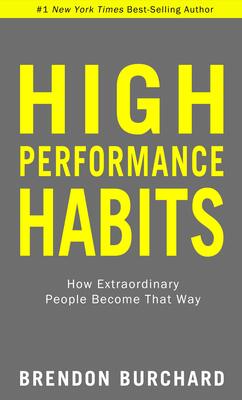
I like this book because it's practical. I also hate it in places because it feels like the book couldn't qualify as a best seller without completely unnecessary chapters. The book can be very useful if you can finish it.
First of all few words about the author. It's hard to respect Brendon when he is proud that he wrote a book in 1 month (not this book). Author who seeks success while openly claiming that good research is unnecessary. You will see that while reading it. Few chapters are written around author's personal stories and claims based on it. So yeah, who needs research?
The best part the book is very well structured and easy to follow. The content is weak in places, but there is nothing that conflicts with my personal experience, so it's easy for me to accept it even with weak arguments.
The book presents 6 habits and 3 common mistakes/traps.
Anything you want
by Derek Sivers
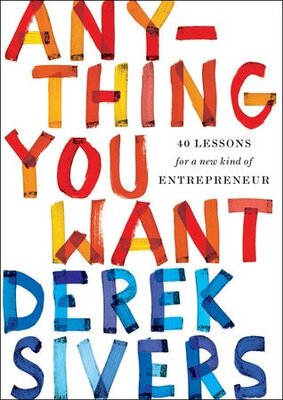
This is extremely dense book. It wins extra points for being concise. You can read it in hour or two. There is also audiobook read by the author.
I still can't make my mind about Derek. It's either he is genius and hiding it very well. Or he is the most naive and luckiest man. Either way read the book, it's worth it.
One thing really surprised me. Derek talks about completely different attitude of running a business. Every single business I know is there for one reason — money. You might think that's the best way to run the business. Sure, but it's definitely a survivorship bias. Money focused business might live longer but it's like a walking dead — it ruins the scenery.
It's rare to find customer focused business. Everybody says they focus on their customers. Yeah right, as long as their business is growing. Are your customers really interested in your business growth? I don't think so. They are interested in a great service/product. In fact larger companies tend to have worse service than their small competitors.
The author's mindset is similar to Basecamp. Focus on customers. You are not going to need it. Adjust as you go. No funding.
Quick notes:
I like his "HELL YEAH! or no" principle. I saw it many years ago and it got stuck with me for all that time.
Delegate or die: Answer the question and explain the thought process and philosophy behind the answer.
Trust, but verify: Remember it when delegating. You have to do both.
A real person, a lot like you: Technology depersonalises humans, but there are people on the other end, remember that.
Quote from Steve Blank: No plan survives first contact with customers.
You should feel pain. If you do you will always know what to improve.
If you like the book I would recommend to follow Derek's blog.
The Phoenix Project
by Gene Kim, Kevin Behr, George Spafford
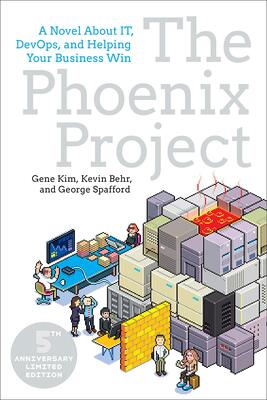
This is a great technical story. I find it hard to explain my daily job to a non technical person. This book is the best example I've seen which closely resembles what the tech work is like. It's not the perfect match but the closest I've seen by far.
The story's realism keeps holding your attention till the end. The book is well paced and full of management lessons. Few highlights which I enjoyed:
"Free puppy" analogy. When what you think is free ends up costing you a lot over the years. I find people tend to favour short term thinking unfortunately.
Management of key resources and bottle necks at production factories and office jobs.
The book brings attentions to 4 types of work in tech teams:
- Business projects
- Internal projects
- Changes
- Unplanned work
And my final observation, just like in real life, managers in the book don't have formal management education.
The book focuses on the management aspect of work. I would recommend this book to experienced tech people, because they will appreciate it more. If you are outside of tech and want to get a glimpse into the daily lives of tech management jobs have a look as well.
Shape Up. Stop Running in Circles and Ship Work that Matters
by Ryan Singer

It is available online.
Shortly after I finished Inspired book Shape Up book came to my radar. After reading this book the whole puzzle got together. The pieces:
- 37 signals is a software company that develops Basecamp
- Basecamp is a project management and communication tool
- Basecamp is used by 37 signals to develop Basecamp
This book serves well as a guide on how to use Basecamp. The closer your process is to this book, the more useful Basecamp will be for you.
It’s important to note that Basecamp is a cash-cow. The quality of the development process is not necessary affects its success. Read the book with a grain of salt.
Their process is also Dual Track. The first stage is exploration and the second is development. However unlike in Inspired, it’s not clear if they ever do user testing. The book is very practical and it’s easy to see that it evolved over time.
I find Shape Up process very reactive as they discourage having backlog. I agree with the principle that important ideas will always come back, so you don’t need to record them. However they went to the extreme to reinvent the road map every 2 months. Basecamp doesn’t feel like a product but a playground for its founders.
I think the book will gain popularity because it’s short and free. It would serve as a good introduction to dual track processes. I will recommended it on this basis to others.
Inspired: how to create products customers love
by Marty Cagan
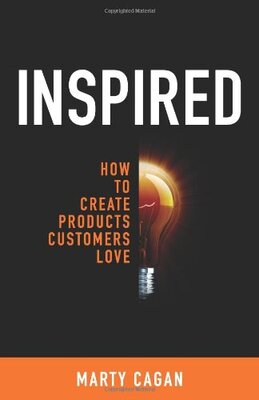
My friend is a big fan of Marty Cagan. He is so impressed by his work that it made me think I’m missing out, so I’ve decided to read it. Inspired is a book for product managers about product managers by product managers.
Let’s start with important things first. I loved it. My career is a decade old and I was surprised how little I knew about product development. This book taught me a lot. What product managers are, what they are not, what they do, how to hire and how to work with them. It’s probably the most comprehensive book on a single topic.
The mind blowing discovery for my was at the end. The author is highlighting through the book about the difference between normal agile coach and the one who worked in product team. It’s only at the end of the book he explains the difference. Scrum as the most popular agile methodology is created in consulting (custom software in the book). It works amazingly well in such setup and it is completely unsuitable for product teams. I knew it myself deep inside, but verbalising it made it real. I like agile manifesto. With that the new knowledge 12 principles behind the Agile Manifesto opened up from a completely new perspective.
Our highest priority is to satisfy the customer through early and continuous delivery of valuable software.
It’s great for consultants, pointless for product teams.
The process the author proposes is something between waterfall and agile. In short you don’t develop anything until you’ve proven the prototype and business model. I was very skeptical at the start but finally got convinced that it is a good process to use. The book does not give it a name, but people call it Dual Track Development.
On the first track you explore ideas, come up with prototypes and test them on users. The idea is to keep the feedback loop tight and iterate on ideas. On this track all roles must be involved, including developers. That avoid the problem with waterfall model where levels don’t communicate.
The second track is usual development process. That could be Scrum, Kanban or chaos driven development.
Both tracks run in parallel, but with different cycles.
If you test an idea and it fails, you just scrap it and move to the next. The BIG difference to plain agile you don’t pollute your code base with bad ideas. Also when you start development you already have well designed, tested and proven feature. No more assumptions and no more pivoting.
Even though the book is mostly for product managers, I found it very useful, so would recommend it to everybody who is in software development.
The Barefoot Investor
by Scott Pape
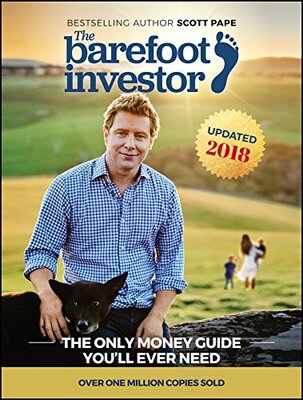
I'm pretty good with money (at least I'd like to think that). However I lack a lot of common knowledge about Australian rules. For example how super works or what happens when your bank goes bankrupt. This book is mostly relevant to only Australians, as financial system differs in each country.
The book present a simple step by step guide on how to take your financial life under control. Starting from the bottom of owning a lot of debt up to getting the financial independence. This book is recent which is important as the content is time relevant.
The books proves a good general knowledge and a must read for all Australians.